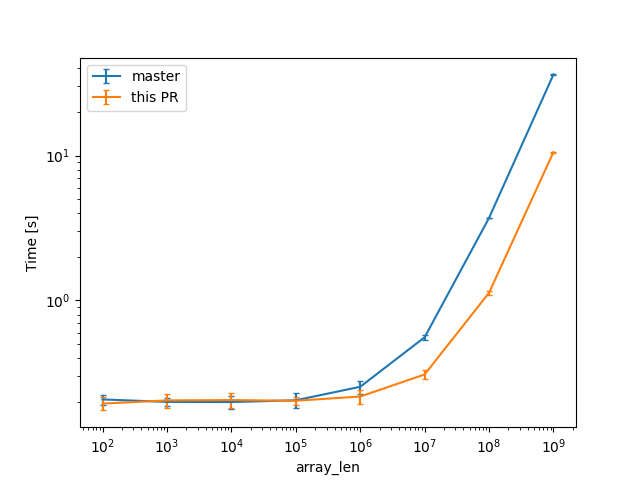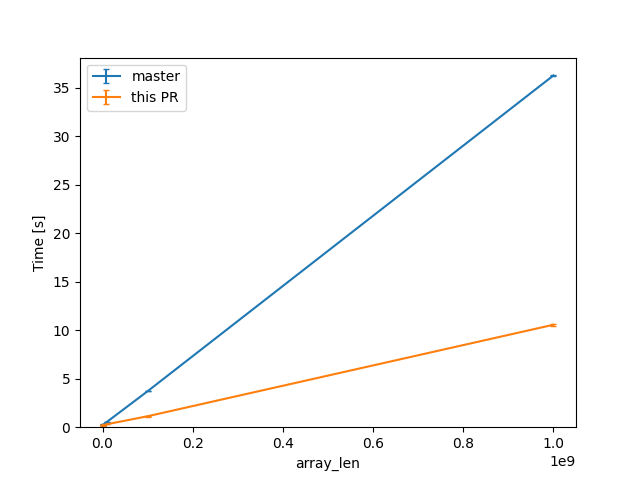get rid of `tcx` in deadlock handler when parallel compilation
This is a very obscure and hard-to-trace problem that affects thread scheduling. If we copy `tcx` to the deadlock handler thread, it will perform unpredictable behavior and cause very weird problems when executing `try_collect_active_jobs`(For example, the deadlock handler thread suddenly preempts the content of the blocked worker thread and executes the unknown judgment branch, like #94654).
Fortunately we can avoid this behavior by precomputing `query_map`. This change fixes the following ui tests failure on my environment when set `parallel-compiler = true`:
```
[ui] src/test\ui\async-await\no-const-async.rs
[ui] src/test\ui\infinite\infinite-struct.rs
[ui] src/test\ui\infinite\infinite-tag-type-recursion.rs
[ui] src/test\ui\issues\issue-3008-1.rs
[ui] src/test\ui\issues\issue-3008-2.rs
[ui] src/test\ui\issues\issue-32326.rs
[ui] src/test\ui\issues\issue-57271.rs
[ui] src/test\ui\issues\issue-72554.rs
[ui] src/test\ui\parser\fn-header-semantic-fail.rs
[ui] src/test\ui\union\union-nonrepresentable.rs
```
Updates #75760Fixes#94654
CTFE interning: don't walk allocations that don't need it
The interning of const allocations visits the mplace looking for references to intern. Walking big aggregates like big static arrays can be costly, so we only do it if the allocation we're interning contains references or interior mutability.
Walking ZSTs was avoided before, and this optimization is now applied to cases where there are no references/relocations either.
---
While initially looking at this in the context of #93215, I've been testing with smaller allocations than the 16GB one in that issue, and with different init/uninit patterns (esp. via padding).
In that example, by default, `eval_to_allocation_raw` is the heaviest query followed by `incr_comp_serialize_result_cache`. So I'll show numbers when incremental compilation is disabled, to focus on the const allocations themselves at 95% of the compilation time, at bigger array sizes on these minimal examples like `static ARRAY: [u64; LEN] = [0; LEN];`.
That is a close construction to parts of the `ctfe-stress-test-5` benchmark, which has const allocations in the megabytes, while most crates usually have way smaller ones. This PR will have the most impact in these situations, as the walk during the interning starts to dominate the runtime.
Unicode crates (some of which are present in our benchmarks) like `ucd`, `encoding_rs`, etc come to mind as having bigger than usual allocations as well, because of big tables of code points (in the hundreds of KB, so still an order of magnitude or 2 less than the stress test).
In a check build, for a single static array shown above, from 100 to 10^9 u64s (for lengths in powers of ten), the constant factors are lowered:
(log scales for easier comparisons)

(linear scale for absolute diff at higher Ns)

For one of the alternatives of that issue
```rust
const ROWS: usize = 100_000;
const COLS: usize = 10_000;
static TWODARRAY: [[u128; COLS]; ROWS] = [[0; COLS]; ROWS];
```
we can see a similar reduction of around 3x (from 38s to 12s or so).
For the same size, the slowest case IIRC is when there are uninitialized bytes e.g. via padding
```rust
const ROWS: usize = 100_000;
const COLS: usize = 10_000;
static TWODARRAY: [[(u64, u8); COLS]; ROWS] = [[(0, 0); COLS]; ROWS];
```
then interning/walking does not dominate anymore (but means there is likely still some interesting work left to do here).
Compile times in this case rise up quite a bit, and avoiding interning walks has less impact: around 23%, from 730s on master to 568s with this PR.
Fix FFI-unwind unsoundness with mixed panic mode
UB maybe introduced when an FFI exception happens in a `C-unwind` foreign function and it propagates through a crate compiled with `-C panic=unwind` into a crate compiled with `-C panic=abort` (#96926).
To prevent this unsoundness from happening, we will disallow a crate compiled with `-C panic=unwind` to be linked into `panic-abort` *if* it contains a call to `C-unwind` foreign function or function pointer. If no such call exists, then we continue to allow such mixed panic mode linking because it's sound (and stable). In fact we still need the ability to do mixed panic mode linking for std, because we only compile std once with `-C panic=unwind` and link it regardless panic strategy.
For libraries that wish to remain compile-once-and-linkable-to-both-panic-runtimes, a `ffi_unwind_calls` lint is added (gated under `c_unwind` feature gate) to flag any FFI unwind calls that will cause the linkable panic runtime be restricted.
In summary:
```rust
#![warn(ffi_unwind_calls)]
mod foo {
#[no_mangle]
pub extern "C-unwind" fn foo() {}
}
extern "C-unwind" {
fn foo();
}
fn main() {
// Call to Rust function is fine regardless ABI.
foo::foo();
// Call to foreign function, will cause the crate to be unlinkable to panic-abort if compiled with `-Cpanic=unwind`.
unsafe { foo(); }
//~^ WARNING call to foreign function with FFI-unwind ABI
let ptr: extern "C-unwind" fn() = foo::foo;
// Call to function pointer, will cause the crate to be unlinkable to panic-abort if compiled with `-Cpanic=unwind`.
ptr();
//~^ WARNING call to function pointer with FFI-unwind ABI
}
```
Fix#96926
`@rustbot` label: T-compiler F-c_unwind
Enable MIR inlining
Continuation of https://github.com/rust-lang/rust/pull/82280 by `@wesleywiser.`
#82280 has shown nice compile time wins could be obtained by enabling MIR inlining.
Most of the issues in https://github.com/rust-lang/rust/issues/81567 are now fixed,
except the interaction with polymorphization which is worked around specifically.
I believe we can proceed with enabling MIR inlining in the near future
(preferably just after beta branching, in case we discover new issues).
Steps before merging:
- [x] figure out the interaction with polymorphization;
- [x] figure out how miri should deal with extern types;
- [x] silence the extra arithmetic overflow warnings;
- [x] remove the codegen fulfilment ICE;
- [x] remove the type normalization ICEs while compiling nalgebra;
- [ ] tweak the inlining threshold.
Previously, this printed the debugging options, not the lint options,
and only handled `-Whelp`, not `-A/-D/-F`.
This also fixes a few other misc issues:
- Fix `// check-stdout` for UI tests; previously it only worked for run-fail and compile-fail tests
- Add lint headers for tool lints, not just builtin lints
- Remove duplicate run-make test
interpret: make a comment less scary
This slipped past my review: "has no meaning" could be read as "is undefined behavior". That is certainly not what we mean so be more clear.
cleanup mir visitor for `rustc::pass_by_value`
by changing `& $($mutability)?` to `$(& $mutability)?`
I also did some formatting changes because I started doing them for the visit methods I changed and then couldn't get myself to stop xx, I hope that's still fairly easy to review.
Improve some inference diagnostics
- Properly point out point location where "type must be known at this point", or else omit the note if it's not associated with a useful span.
- Fix up some type ambiguity diagnostics, errors shouldn't say "cannot infer type for reference `&'a ()`" when the given type has no inference variables.
Shorten def_span for more items.
The `def_span` query only returns the signature span for functions.
Struct/enum/union definitions can also have a very long body.
This PR shortens the associated span.
Rollup of 6 pull requests
Successful merges:
- #97488 (Suggest blanket impl to the local traits)
- #98585 (Make `ThinBox<T>` covariant in `T`)
- #98644 (fix ICE with -Wrust-2021-incompatible-closure-captures)
- #98739 (fix grammar in useless doc comment lint)
- #98741 (Many small deriving cleanups)
- #98756 (Use const instead of function and make it private)
Failed merges:
r? `@ghost`
`@rustbot` modify labels: rollup
Suggest blanket impl to the local traits
This PR will add additional suggestion regarding the blanket implementation when it is possible, by generation a new help message + suggestion.
Closes https://github.com/rust-lang/rust/issues/96076
Signed-off-by: Vincenzo Palazzo <vincenzopalazzodev@gmail.com>
Rewrite dead-code pass to avoid fetching HIR.
This allows to get a more uniform handling of spans, and to simplify the grouping of diagnostics for variants and fields.
The existing derive code allows for various possibilities that aren't
needed in practice, which complicates the code. There are only a few
auto-derived traits and new ones are unlikely, so this commit simplifies
things.
- `PtrTy` has been eliminated. The `Raw` variant was never used, and the
lifetime for the `Borrowed` variant was always `None`. That left just
the mutability field, which has been inlined as necessary.
- `MethodDef::explicit_self` was a confusing `Option<Option<PtrTy>>`.
Indicating either `&self` or nothing. It's now a `bool`.
- `borrowed_self` is renamed as `self_ref`.
- `Ty::Ptr` is renamed to `Ty::Ref`.
The `&[ast::Variant]` field isn't used.
The `Vec<Ident>` field is only used for its length, but that's always
the same as the length of the `&[Ident]` and so isn't necessary.
This created unexpected diagnostics while compiling alga:
cannot satisfy `<Self as Module>::Ring == _`
Turns out that we don't need this diagnostic as we disable inlining when
it would trigger an ICE.
Const eval no longer runs MIR optimizations so unless this is getting
run as part of a MIR optimization like const-prop, there can be unused
type parameters even if polymorphization is enabled.
interpret: add From<&MplaceTy> for PlaceTy
We have a similar instance for `&MPlaceTy` to `OpTy`. Also add the same for `&mut`.
This avoids having to write `&(*place).into()`, which we have a few times here and at least twice in Miri (and it comes up again in my current patch).
r? ```@oli-obk```
For diagnostic information of Boolean, remind it as use the type: 'bool'
Fixes#98492.
It helps programmers coming from other languages
modified: compiler/rustc_resolve/src/late/diagnostics.rs
Added llvm lifetime annotations to function call argument temporaries.
The goal of this change is to ensure that llvm will do stack slot
optimization on these temporaries. This ensures that in code like:
```rust
const A: [u8; 1024] = [0; 1024];
fn copy_const() {
f(A);
f(A);
}
```
we only use 1024 bytes of stack space, instead of 2048 bytes.
I am new to developing for the rust compiler, and as such not entirely sure, but I believe this should be sufficient to close#98156.
Also, this does not contain a test case to ensure this keeps working, primarily because I am not sure how to go about testing this. I would love some suggestions as to how that could be approached.